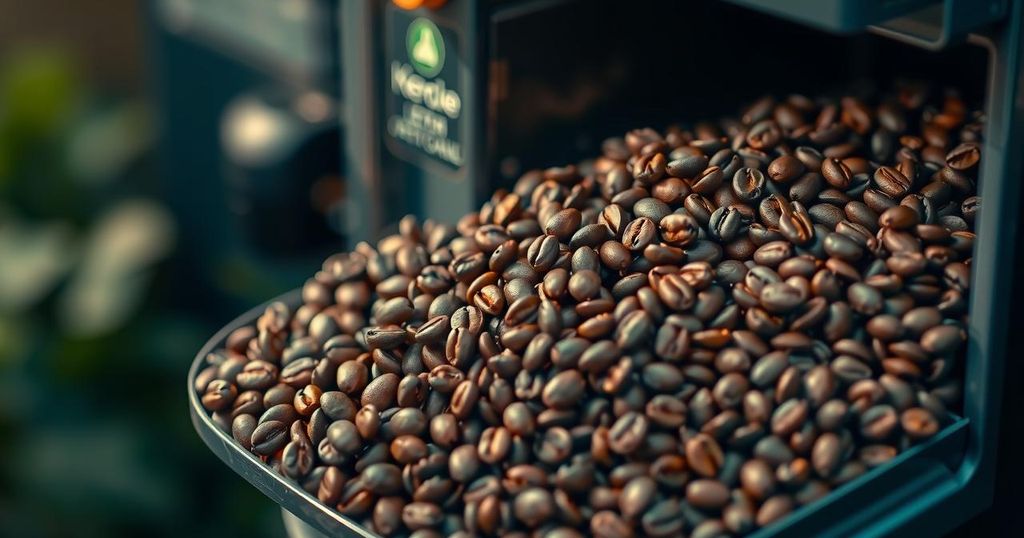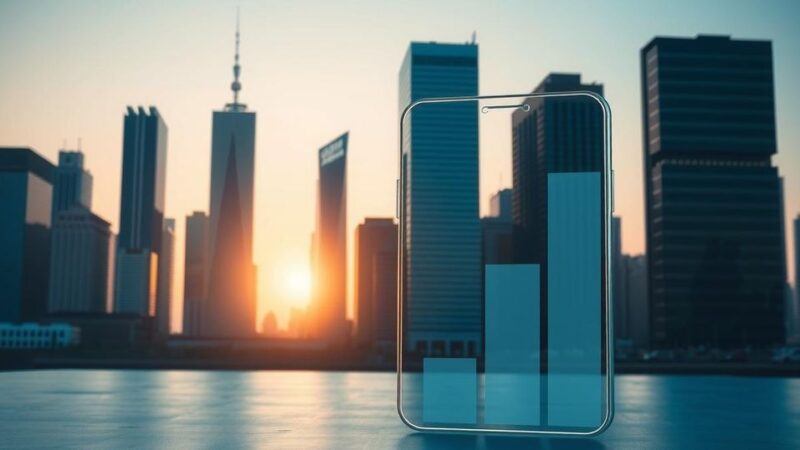The UK coffee sector generates significant waste, including billions of disposable cups and tonnes of used grounds, prompting innovative solutions from companies like ButterflyCup and bio-bean to promote sustainability and reduce environmental impact. Consumer engagement is essential for the success of these initiatives.
The coffee consumption in the United Kingdom is immense, with the population indulging in approximately 35 billion cups annually. This high demand is accompanied by significant environmental repercussions, including the disposal of more than 2.5 billion disposable coffee cups each year and the diversion of over half a million tonnes of spent coffee grounds to landfills. The coffee sector also contributes notably to carbon emissions, a challenge that the UK government seeks to address through its commitment to achieving carbon neutrality by 2050. In response to these pressing issues, several coffee enterprises are innovating potential solutions. One such advancement is the ButterflyCup, an entirely paper-based disposable cup devoid of any plastic linings or covers, with the lid formed through manual folding. Developed by entrepreneurs Tommy McLoughlin and Joe Lu in Ireland, this environmentally friendly cup aims to reduce reliance on plastic. “We believe it is the world’s most environmentally friendly disposable cup,” asserts Mr. McLoughlin. Although the cup’s costs are slightly higher than conventional disposable options, it presents a more economical alternative to compostable cups with separate lids. Despite its promising design, the recycling of ButterflyCup presents challenges, as widespread recyclers often fear contamination unless cups are collected separately. Nevertheless, they can naturally biodegrade or be composted. The industry grapples with the carbon footprint associated with transportation, primarily due to the plastic packaging used for distributing coffee, which further complicates the waste management situation. To confront these problems, companies such as Origin Materials are advocating for a comprehensive transformation toward sustainable products. Rich Riley, co-chief executive of Origin Materials, emphasizes the significant shift required: “It’s a kind of ‘once-in-a-planet’ transition we’re looking at, from fossil-based [goods] to sustainable ones.” Other innovations include Ernie, a London-based enterprise utilizing a vintage electric milk float to distribute coffee in reusable containers, thus minimizing single-use plastics. Their approach was adjusted during the pandemic, focusing on home delivery rather than supplying large offices. Moreover, bio-bean is turning used coffee grounds from cafes and restaurants into bio-fuel logs, demonstrating viable ways to repurpose waste. Finnish company Rens even produces trainers from coffee grounds mixed with recycled plastics. The rise of single-use coffee pods, particularly during the pandemic, has also prompted companies to develop compostable alternatives to enhance recyclability and participate in a circular economy. While the movement toward greener coffee consumption is in its infancy, the receptiveness of consumers towards these sustainable solutions plays a crucial role in their adoption. As Rich Riley notes, “It’s a massive challenge and a global undertaking, but in our experience, customers very much want to embrace the circular economy.”
The environmental impact of coffee consumption in the UK has emerged as a critical issue, coinciding with a marked increase in coffee consumption rates. This consumption generates substantial waste, notably in the form of disposable coffee cups and used coffee grounds, leading to significant landfill contributions and greenhouse gas emissions. The coffee industry is under growing pressure to innovate, not only to comply with government mandates for carbon neutrality but also to respond to consumer demand for sustainability in product offerings. Various companies are now embarking on initiatives that range from rethinking disposable products to repurposing waste, signifying a shift towards a more sustainable future for coffee consumption.
In summary, the coffee industry is at a pivotal juncture, with significant efforts being undertaken to mitigate its environmental impact through innovative solutions like the ButterflyCup and sustainable delivery models. As various enterprises adapt to respond to both regulatory expectations and consumer preferences, the potential for a greener coffee culture hinges on public engagement with these emerging sustainable practices. Achieving carbon neutrality and reducing waste will require collective efforts, but the positive consumer response provides hope for a more sustainable coffee future.
Original Source: www.bbc.com






